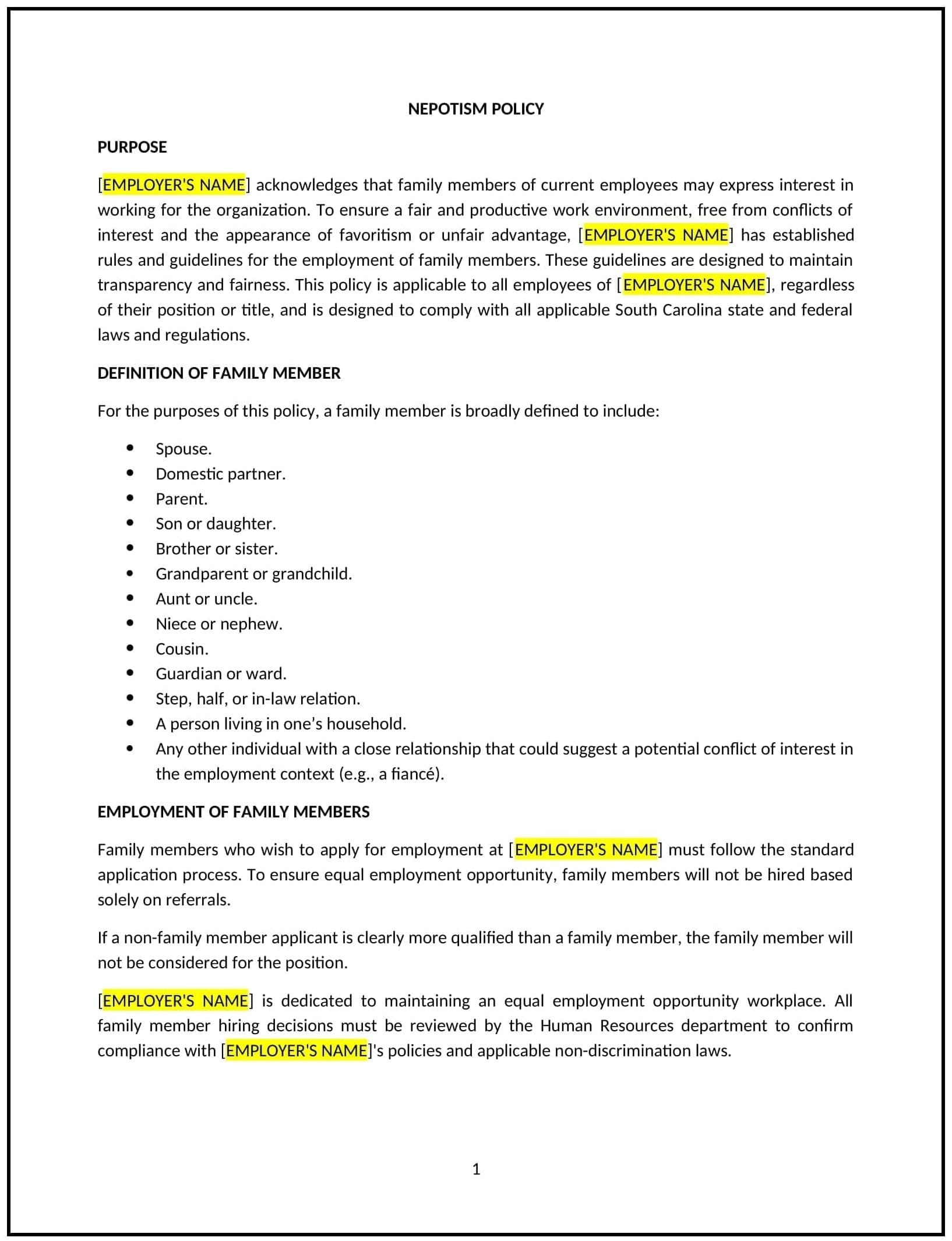Got contracts to review? While you're here for policies, let Cobrief make contract review effortless—start your free review now.

Customize this template for free
Nepotism policy (South Carolina)
This nepotism policy is designed to help South Carolina businesses establish guidelines for managing relationships between employees who are related by family or close personal ties. It outlines procedures for preventing favoritism, ensuring fairness, and maintaining professionalism in hiring, promotions, and workplace interactions.
By adopting this policy, businesses can promote fairness, reduce conflicts of interest, and align with general best practices for workplace ethics.
How to use this nepotism policy (South Carolina)
- Define nepotism: Explain what constitutes nepotism, such as hiring, promoting, or giving preferential treatment to family members or close personal associates.
- Establish hiring and promotion rules: Specify that family members or close associates cannot be hired, supervised, or promoted by their relatives within the organization.
- Address conflicts of interest: Outline procedures for identifying and managing situations where nepotism could create conflicts of interest or perceived favoritism.
- Set disclosure requirements: Require employees to disclose any familial or close personal relationships with colleagues that could impact their work.
- Train managers: Educate supervisors on handling nepotism-related issues and maintaining fairness in hiring and promotions.
- Review and update: Assess the policy annually to ensure it aligns with evolving business needs and ethical standards.
Benefits of using this nepotism policy (South Carolina)
This policy offers several advantages for South Carolina businesses:
- Promotes fairness: Ensures all employees are treated equally, regardless of familial or personal relationships.
- Reduces conflicts of interest: Minimizes the potential for favoritism or bias in hiring, promotions, and workplace decisions.
- Aligns with best practices: Provides a structured approach to managing nepotism and maintaining workplace ethics.
- Builds trust: Demonstrates a commitment to fairness and transparency in all business practices.
- Enhances professionalism: Creates a work environment where decisions are based on merit and qualifications, not personal relationships.
Tips for using this nepotism policy (South Carolina)
- Communicate the policy: Share the policy with employees and include it in the employee handbook.
- Provide training: Educate managers on handling nepotism-related issues and maintaining fairness in hiring and promotions.
- Monitor adherence: Regularly review hiring, promotion, and workplace practices to ensure compliance with the policy.
- Address issues promptly: Take corrective action if nepotism or favoritism is identified.
- Update regularly: Assess the policy annually to ensure it aligns with evolving business needs and ethical standards.